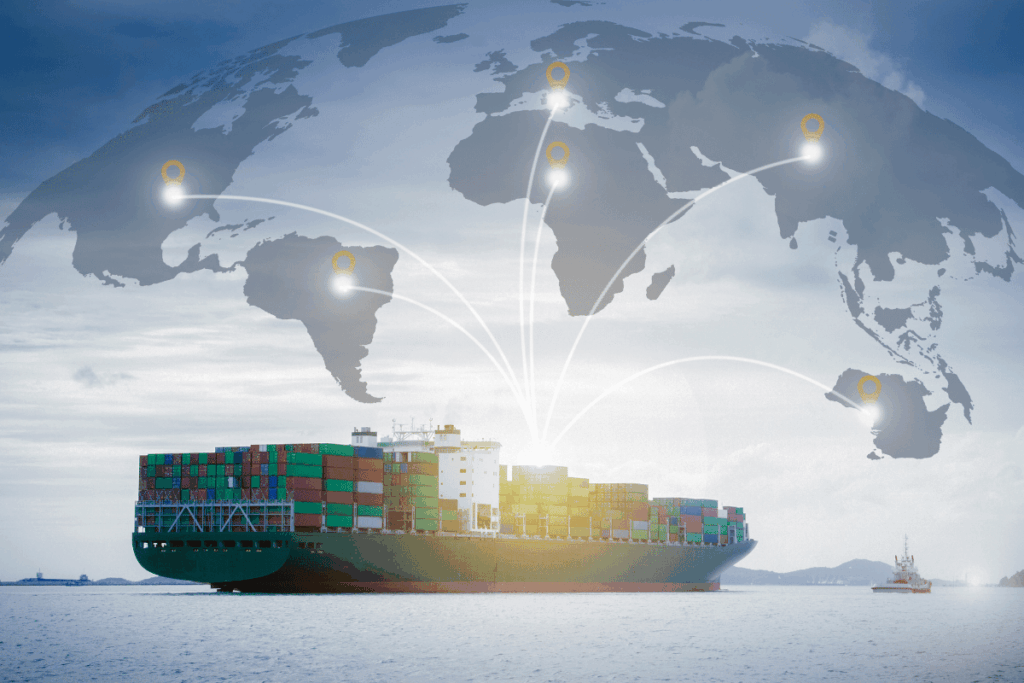Can Global Shipment Tracking Really End Returns?
In the fast-paced world of global eCommerce, success depends not only on what you sell but also on how reliably and transparently you deliver. With customers shopping across borders and expecting consistent service regardless of location, one factor has become increasingly critical: global shipment tracking.
More than just a tool for visibility, shipment tracking plays a direct role in reducing both returns and delays—two of the most costly and reputation-damaging issues in international fulfillment. As global shipping grows in complexity, powered by 4PL networks, multiple carriers, and DTC expansion into new markets, tracking is no longer optional—it’s a necessity.

Why Returns and Delays Are the Silent Killers of Cross-Border Commerce
Returns are expensive. In global shipping scenarios, they’re even more problematic due to extended timelines, international customs regulations, and high logistics costs. Yet many returns are entirely preventable—caused not by product defects, but by poor communication, unfulfilled delivery expectations, or inaccurate address handling.
Delays, too, do more than damage service levels—they erode customer trust. A late delivery with no explanation can feel worse than a defective product. Lack of visibility increases frustration and leads to support tickets, refund requests, or canceled repeat orders.
Where Global Shipment Tracking Makes a Difference
Smart global shipment tracking is about more than scanning a barcode. It includes:
- Real-time route visibility
- Carrier status updates across networks
- Proactive exception management
- Address validation
- Localized event interpretation

By integrating tracking from both postal operators (like Royal Mail, USPS, or CTT) and commercial carriers (such as Evri, FAN, and DHL), businesses can monitor international shipments across borders with consistency and context.
When tracking systems detect delays early—due to customs, weather, or failed delivery attempts—brands can take preemptive action, such as alerting the customer, updating expected delivery dates, or even rerouting packages to pickup points (APMs or parcel shops). This proactive communication prevents unnecessary returns and protects long-term loyalty.
Postalparcel: Tracking with Purpose
At Postalparcel, we understand the unique challenges of global shipping—and we’ve built our logistics service, not just a system, to address them.
One of our core offerings is carrier management, where we consolidate tracking data across a blend of postal and commercial networks. Whether you’re shipping to rural Australia, urban London, or suburban Lisbon, we unify multiple shipping methods into one seamless tracking experience. No more confusion, no more data gaps.

Equally important is our inventory and order management service, which ensures that shipments are dispatched from the most optimal warehouse location based on customer region, product availability, and shipping route. This reduces not just delivery time but also the risk of failed delivery due to stock misallocation or last-mile inefficiencies.
Our clients—ranging from DTC fashion startups to growing subscription box brands on Shopify and Kickstarter—report significant drops in return rates after implementing our integrated global tracking. For instance, one seller of wellness kits struggled with delivery delays in Southeast Asia due to mismatched carriers and inconsistent status updates. After migrating to Postalparcel, they saw a 30% decrease in customer service inquiries and a 21% reduction in return requests—without changing their shipping carriers. The difference was visibility and coordination.
Address Validation and First Attempt Delivery Rates
Another overlooked area where global tracking makes an impact is address validation. Failed deliveries due to incorrect or incomplete addresses are one of the top causes of international returns. A robust tracking framework incorporates address intelligence, using databases and real-time correction tools to reduce misrouted packages.
Combined with detailed tracking, this leads to higher first-attempt delivery rates, lower operational costs, and better customer satisfaction—especially in high-return markets like fashion, electronics, or personalized goods.
Tracking Builds Trust Across Languages and Borders
In global commerce, communication barriers can exacerbate delivery issues. A French-language courier update may confuse an English-speaking Australian customer. A delayed shipment from Romania may look “stuck” simply because the event wasn’t translated or explained properly.

Good tracking bridges those gaps—not just translating messages, but contextualizing them. “In customs” doesn’t have to mean lost. “Pending at delivery depot” can become “ready for pickup at your nearby parcel shop.”
Global shipment tracking that’s clear, multilingual, and predictive is the backbone of reliable fulfillment. It transforms risk into reassurance.
Conclusion
Reducing delays and returns isn’t just about faster shipping—it’s about better tracking, smarter routing, and proactive communication.
As cross-border eCommerce grows, only the businesses that invest in global shipment tracking will maintain the agility and trust needed to scale sustainably. Customers will forgive delays—but they won’t forgive silence.
With partners like Postalparcel, brands gain more than just a tracking dashboard. They gain a service designed for performance, transparency, and real-world complexity—blending carrier management, inventory optimization, and predictive visibility under one roof.
Industry Insights
news via inbox
Nulla turp dis cursus. Integer liberos euismod pretium faucibua








